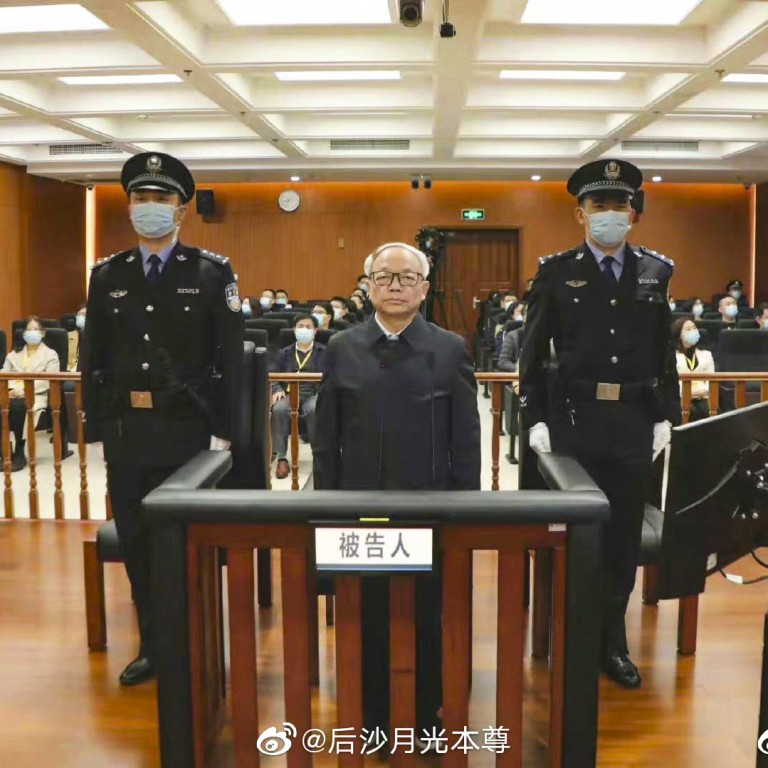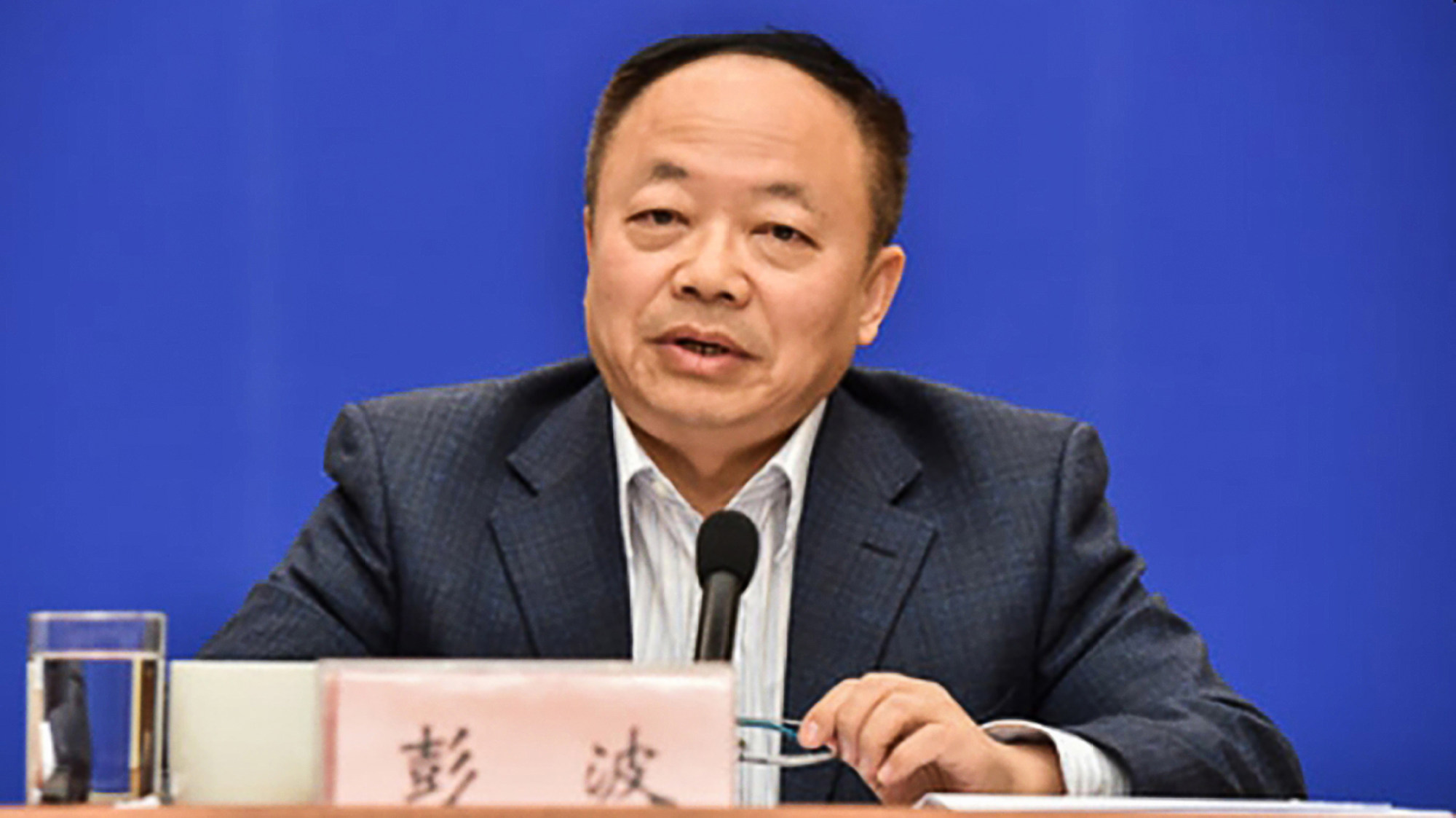
Top Chinese internet censor and anti-cult official pleads guilty to taking US$8m in bribes
- Peng Bo, former deputy head of China’s cyberspace regulator and cult affairs office, was accused of using his position for personal gain
- The 64-year-old pleaded guilty on Thursday, with sentencing to follow at a later date, Xinhua reported
The case was heard on Thursday at the Wuxi Intermediate People’s Court in Jiangsu province and sentencing will take place at a later date, according to Xinhua.

Before he was placed under investigation by the Central Commission for Discipline Inspection in March, Peng had been teaching new media at Peking University, a role he took up after retiring in 2018.
His high-profile official roles included that of deputy director of the party’s office on cult affairs. The main task of the office, set up in 1999, included cracking down on the Falun Gong, a group founded in 1992 and banned as an “evil cult” in 1999.
In 2015, he was transferred to the Central Political and Legal Affairs Commission, the party’s top law enforcement agency, where he was responsible for the online monitoring and policing of cults. He also played a key role in establishing a social media platform for the commission.
Chinese cult buster who targeted Falun Gong faces corruption probe
As deputy head of the Cyberspace Administration – China’s leading online watchdog – from 2012, Peng also had direct responsibility for regulating the internet.
Announcing he was being stripped of his membership, the party in August accused Peng of “straying from the decisions and plans laid down by the Party Central about the propaganda struggle over the internet”.
The Central Commission for Discipline Inspection, the party’s top disciplinary body, also said Peng “lost faith and was disloyal to the party”.
In October, when prosecution began, he was accused of helping unidentified entities to “run their business” and “curtail negative information on the internet”.
China has tightened censorship of online social media platforms such as Weibo in recent years.
This has come amid a major anti-corruption campaign under way since 2012, when Xi Jinping took over as Communist Party chief and vowed to go after both “tigers and flies”.
Tigers, flies and the Chinese dream: Communist Party jargon in the Xi era
Sun used to be in charge of the country’s secret police and also oversaw security matters for Hong Kong and Macau. He was formally arrested on suspicion of taking bribes in November after a 17-month internal investigation.
Fu, who was placed under investigation in October, was in 2015 also appointed head of the top party office responsible for social stability and control of cults.

